This Week in History recalls memorable and decisive events and personalities of the past.
November 15th 1983 – Turkish Republic of Northern Cyprus declares independence; it is only recognised by Turkey
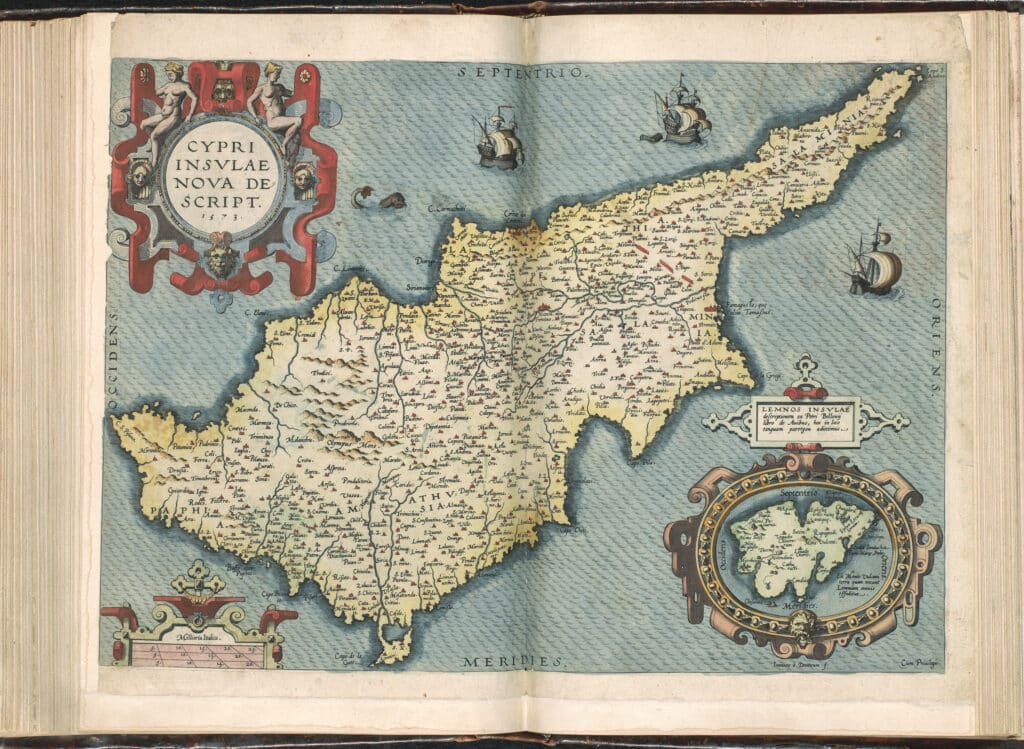
Cypri insvla nova descript 1573, Ioannes á Deutecum f[ecit], from the Atlas Ortelius by Abraham Ortelius.
The island of Cyprus has always been a place stuck between two worlds.
Humans have lived on the island for over 12 000 years and over its history it has been settled by many peoples.
During the Late Bronze Age, around 1400 BC, the island was settled by Greek speakers who came to form the core of the island’s identity for most of its history. It was also settled and ruled at times by Phoenicians, Assyrians, Persians, Romans, Jews, and Arabs.
During the Middle Ages, starting in 680, the island was for a time jointly ruled by both the Arab Caliph and the Eastern Roman emperor, in a strange and unique peaceful shared government.
The Romans recaptured the island for themselves in 965 as the Caliphate collapsed.
In 1191 the King of England, Richard the First, captured the island from a Roman governor who had declared the island independent and it was then sold to a French noble family, who ruled it for centuries to come.
In 1473, the island was captured by the Republic of Venice and would rule it until 1570 when the Ottoman Empire invaded and captured the island.
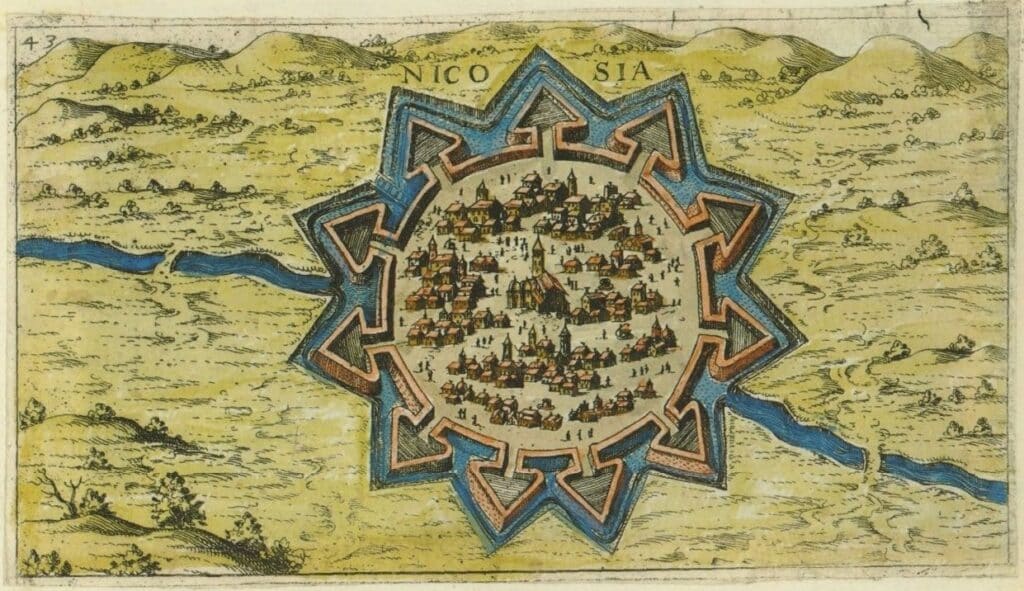
Map of Nicosia in Cyprus, created in 1597 by the Venetian Giacomo (Jacomo) Franco (1550-1620) for his book Viaggio da Venetia a Constantinopoli per Mare
It would remain under Ottoman control for 308 years.
During this time the Ottomans largely let the Greek Cypriot Orthodox Church manage the island, with occasional interventions to extract extra tribute, or crush dissent.
Many Turks and Muslims from across the empire would settle Cyprus during this period.
In 1821, the Greeks in mainland Greece revolted against the Ottoman Empire, and would eventually win independence. Support for the Greek revolt saw the Ottoman authorities harshly stamp out any signs of sympathy for the rebels.
As the Ottoman Empire declined through the 19th century, the Ottomans in 1878 leased the island to the British Empire, which de facto took control of the Island as a colony.
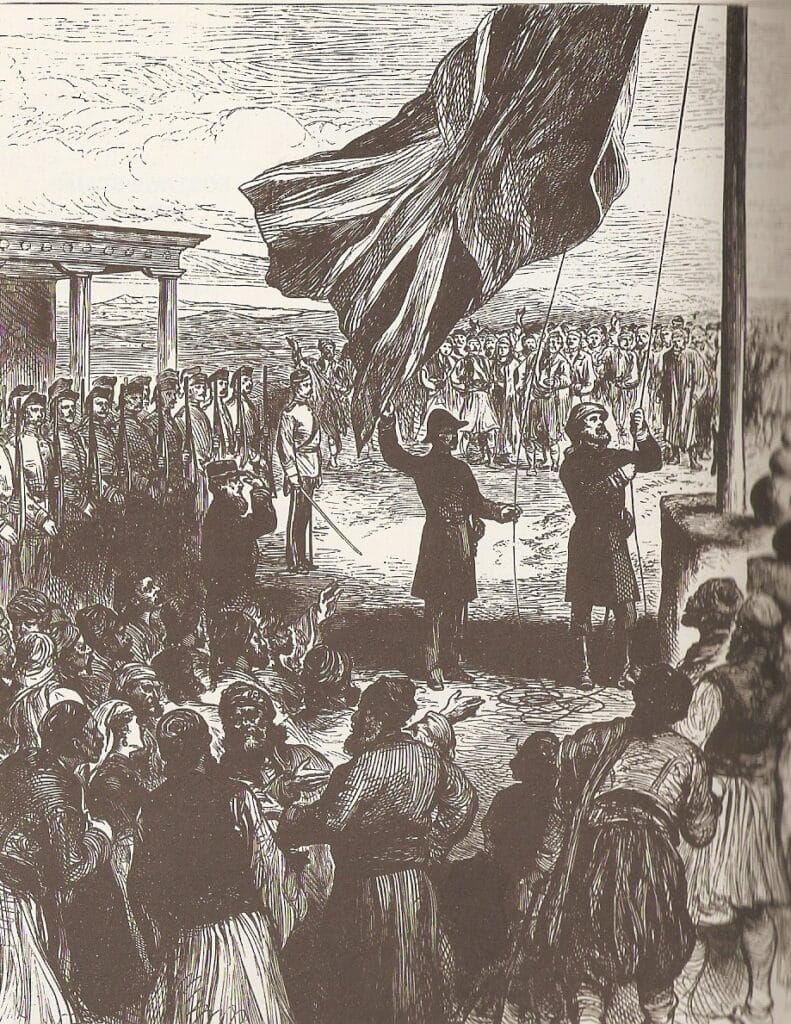
Hoisting of the British flag at Nicosia on 12 July 1878, in the yard of Turkish Barracks (Kışla) on Tripoli bastion, attached to the buildings over Paphos gate
The British would rule the Island officially in the name of the Ottoman Empire until the outbreak of the First World War, when the Ottomans joined the Central Powers and found themselves at war with the British, at which point the British annexed Cyprus.
During the war, Britain would offer Cyprus to the Greek King in exchange for Greece joining the war on Britian’s side.
As nationalist enthusiasm spread across the world, the Greeks of Cyprus became increasingly supportive of the idea of ‘enosis’, the joining of Greece and Cyprus into one country. The Greek population of the island hoped the British would agree to this, but the Greek king was pro-German and rejected the offer of Cyprus.
In the aftermath of the war, the Republic of Turkey would rise out of the ashes of the Ottoman Empire and go on to fight a brutal war with the Greeks. This ended with Turkish populations being expelled from Greece and Greeks being expelled from Turkey. Relations between the two states have remained poor ever since.
Over the next few decades, relations between the Greek Cypriots and the Turkish Cypriots would steadily deteriorate, with the Turks fearing they would be expelled from the island if it joined Greece, and the Greeks fearing domination by Turkey if they were unable to join with Greece.
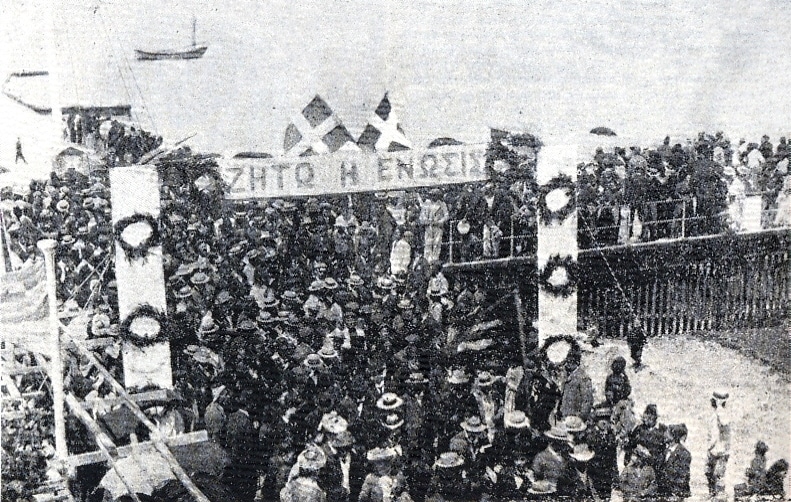
Demonstration in Cyprus during the 1930s, in favor of enosis (union) with Greece
By the mid-1940s, the island was 80% Greek and 20% Turkish. The Greeks would hold a referendum in 1950 (there was no Turkish participation) in which 96% voted for union with Greece. This result was ignored by the British authorities but was a sign of rising tensions. Some Turks sought an independent Turkish state on Cyprus, while others sought a union of the whole island with Turkey.
During the 1950s, Greece began to actively pursue enosis with Cyprus.
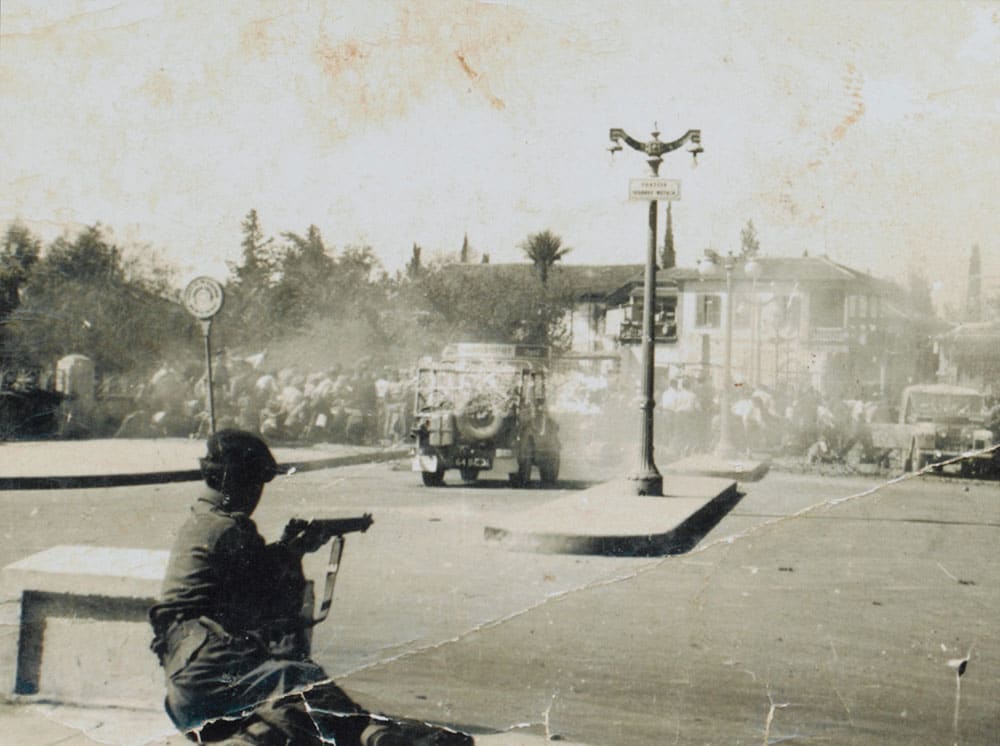
British soldiers fighting against a street riot by EOKA in Nicosia, Cyprus, 1956
Major violence against the British authorities by Greek Cypriot fighters saw the island granted independence from Britain in 1960, although the British maintained control over two military bases on the island, which to this day are part of British Cyprus.
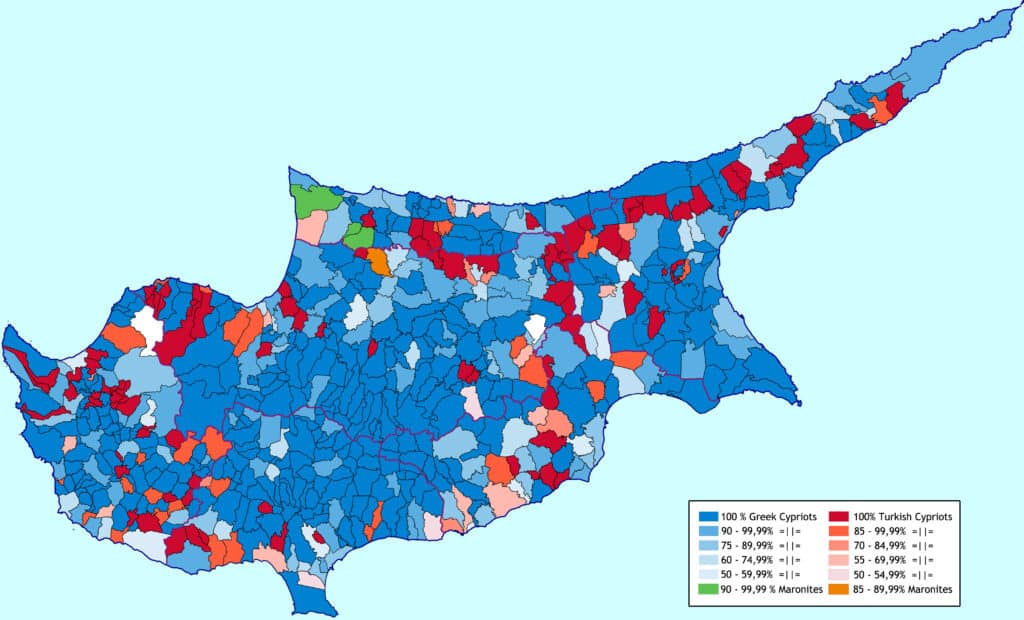
Map showing the distribution of population in Cyprus during the 1960 census [Alexander-Michael Hadjilyra, https://commons.wikimedia.org/w/index.php?curid=7882964]
The independence agreement for Cyprus blocked enosis and divided the government between Turks and Cypriots, with ethnic quotas for government positions. So, for example, the first President of Cyprus was Greek and its first vice-president Turkish. The Turks however were left with veto power over all legislation.
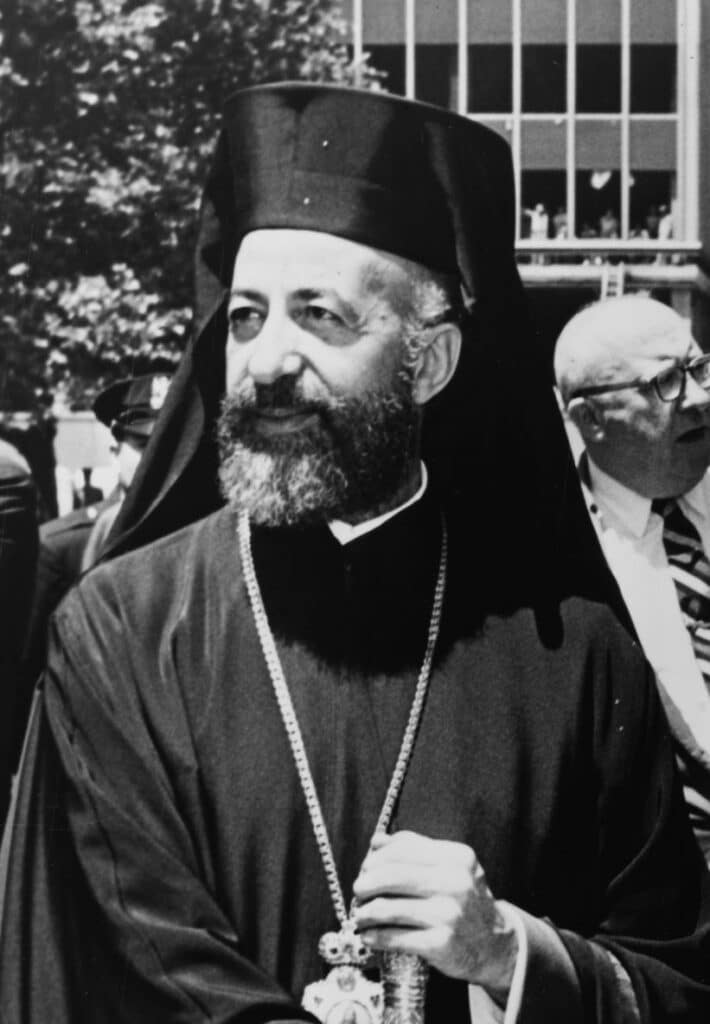
The first president of Cyprus, Makarios III (above) and the first vice-president of Cyprus, Fazıl Küçük (below) [Bundesarchiv, https://commons.wikimedia.org/w/index.php?curid=5451764]
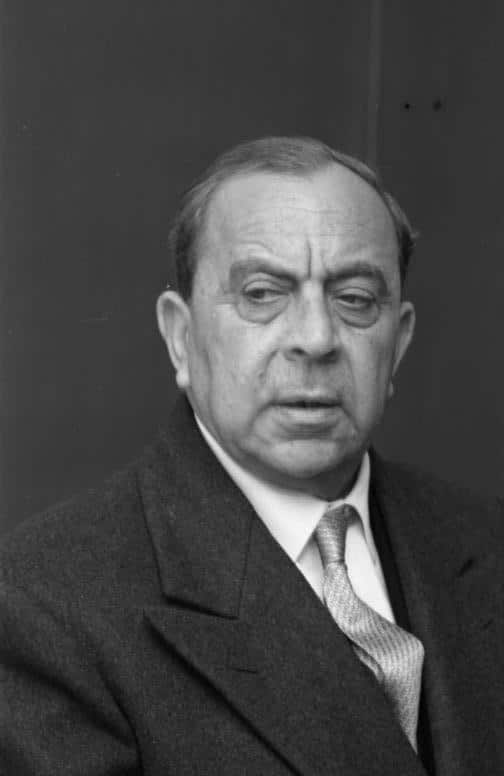
During the 1960s the island was devastated by violence between Greeks and Turks, with mixed Turkish and Greek communities being destroyed and people increasingly being sorted into ethnic communities. Both Greece and Turkey intervened in the island’s politics during this period.
In 1974 the Greek military Junta carried out a coup in Cyprus and installed a pro-enosis hardliner in power. Greece immediately began plans for annexing Cyprus, but Turkey invaded within days, capturing the north of the island. During this period Greeks were driven from northern Cyprus and Turks were chased out of southern Cyprus completing the ethnic division of the island into geographically distinct communities.
The failure to incorporate Cyprus saw the military Junta in Greece fall from power and when a ceasefire was called the island lay divided between a Turkish north and a Greek Cypriot south.
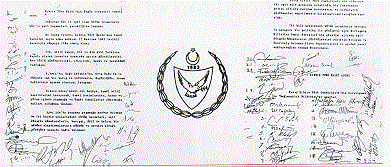
The unilateral declaration of independence of Northern Cyprus
The division of the island would become more permanent when the Turkish-occupied region declared independence on 15 November 1983, as the Republic of Northern Cyprus. This declaration was recognised by Turkey, but not by any other country.
In 2004 there were hopes that Cyprus joining the EU would move the country towards a peaceful resolution of the division, but little progress has been made since. Cyprus remains divided between Europe and Asia, between East and West, between Muslim and Christian, between Greek and Turk.
If you like what you have just read, support the Daily Friend

